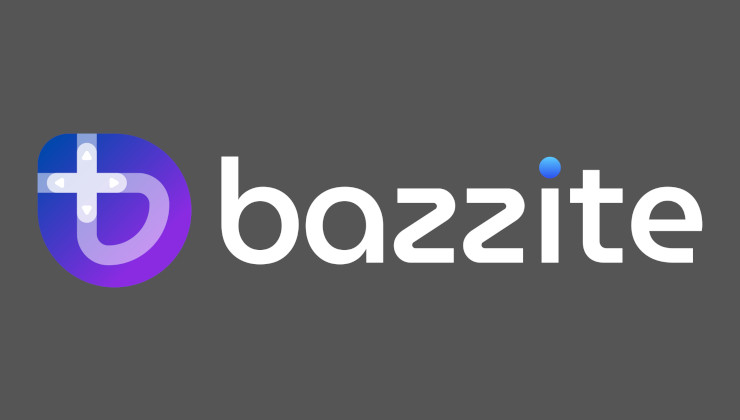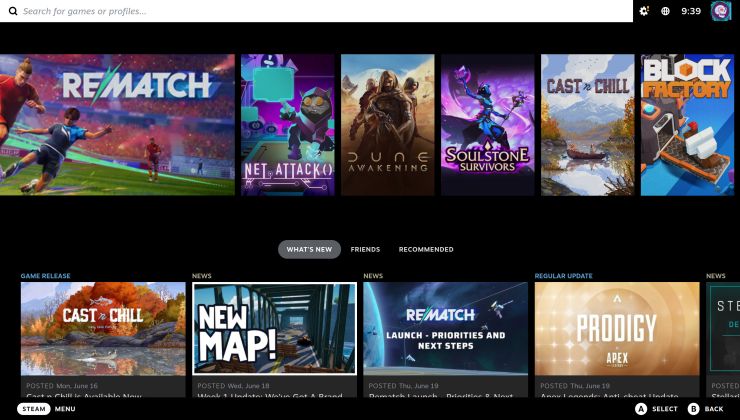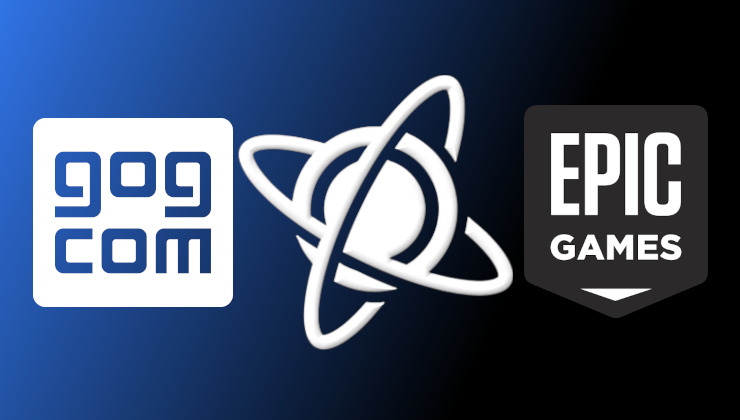According to Statcounter, which should be taken with a pinch of salt of course like any sampling, the Linux share on the desktop hit nearly 4% in December 2023. Last month was a record too and a clear trend over time, as going back a couple of years, it was rarely coming close to 2% but now it's repeatedly nearing 4% so it's quite a good sign overall.
The latest from Statcounter shows for all of 2023 below:
- January - 2.91%
- February - 2.94%
- March - 2.85%
- April - 2.83%
- May - 2.7%
- June - 3.07%
- July - 3.12%
- August - 3.18%
- September - 3.02%
- October - 2.92%
- November - 3.22%
- December - 3.82%
Looking at December it shows Windows rising too, with macOS dropping down. If we actually take ChromeOS directly into the Linux numbers for December 2023 the overall number would actually be 6.24% (ChromeOS is Linux after all).
Here's how just Linux looks over time on Statcounter since early 2009 until now:
Seems like a pretty clear trend over time don't you think? Nice to see this happening elsewhere, just like we've seen over years with the Steam Survey.
You can see their stats over here.
1% is a significant jump. Way more than any single month in Statcounter's history.
More numbers better, of course.
If we actually take ChromeOS directly into the Linux numbers for December 2023 the overall number would actually be 6.24% (ChromeOS is Linux after all).I'm willing to accept this if programs built for ChromeOS work on Linux distributions like Arch, Ubuntu, Fedora, and openSUSE. Is that the case?
I don't know enough about software to know how much the kernel influences compatibility compared to, say, a C Library.
Gonna have to start a new website - gamingonbsd soon.... :)I know it's a joke, but I must admit I'm curious about the state of gaming on BSD - it's a subject that I know absolutely nothing about!
Gonna have to start a new website - gamingonbsd soon.... :)
Too mainstream, BSD is used on the PlayStation 4 and 5. :P
GamingOnHaiku when
I'm willing to accept this if programs built for ChromeOS work on Linux distributions like Arch, Ubuntu, Fedora, and openSUSE. Is that the case?That way round is trivial: ChromeOS uses web apps. The other way round is harder, but ChromeOS has been able to run Linux applications in a container for around five years. Work is ongoing to make Steam and Steam games on ChromeOS a thing.
Well, sure, web applications work on everything. The New Java. I'm sure that's what's at least partially motivating Adobe to port Photoshop to the Web in some limited form.I'm willing to accept this if programs built for ChromeOS work on Linux distributions like Arch, Ubuntu, Fedora, and openSUSE. Is that the case?That way round is trivial: ChromeOS uses web apps. The other way round is harder, but ChromeOS has been able to run Linux applications in a container for around five years. Work is ongoing to make Steam and Steam games on ChromeOS a thing.
I've never owned a Chromebook—surely there are native programs on there not accessible from the web? I know CrossOver has its own ChromeOS version. I know the main point is the web, but since you can install Steam and play Steam games, that's at least one program you can use.
But the way you phrased it makes me think native ChromeOS programs don't actually work on Linux
If Adobe comes out with its entire suite for ChromeOS (namely After Effects) but it doesn't work on Linux, I would not consider ChromeOS a Linux distribution, because it being "based on Linux" would mean nothing for the effective market share of Linux.
In either case we should probably expect that they will further break Linux apart in their stats by shifting Deck to the tablet section (or making a new handheld category), or adding more special case exceptions for ChromeOS or other distributions.
Last edited by mad_mesa on 3 Jan 2024 at 1:21 pm UTC
I've never owned a Chromebook—surely there are native programs on there not accessible from the web?Nope. Until last year ChromeOS the UI and ChromeOS the browser were exactly the same binary. [The change last year](https://arstechnica.com/gadgets/2023/08/google-is-finally-separating-chrome-from-chromeos-for-easier-updates/) to separate them was to make ChromeOS more Linux-like.
They dabbled with having web-apps-but-packaged-differently for a while but dropped that (as Google tends to do) a few years ago in favour of just-web-apps.
The thing that ChromeOS can do that desktop Linux can't (but which Windows can) is run Android applications. But people generally don't think of Android (or Windows) as a desktop Linux OS.
My hypothesis is that statcounter is seeing Steam Deck, and/or that the new ChromeOS Flex may have a slightly different user agent string that is making it miss their special case exception that would otherwise prevent it from getting grouped in with the other Linux distributions.Who's habitually browsing websites on their Steam Deck?
In either case we should probably expect that they will further break Linux apart in their stats by shifting Deck to the tablet section (or making a new handheld category), or adding more special case exceptions for ChromeOS or other distributions.
Nope. Until last year ChromeOS the UI and ChromeOS the browser were exactly the same binary. The change last year to separate them was to make ChromeOS more Linux-like.This is mind-boggling. And makes me all kinds of confused. I skimmed the Ars article at the time and figured it could only be good.
They dabbled with having web-apps-but-packaged-differently for a while but dropped that (as Google tends to do) a few years ago in favour of just-web-apps.
Is the Steam program for ChromeOS just some kind of weirdly packaged webapp pretending not to be a webapp? Can it not run normal binaries? What about CrossOver? On the one hand, so long as web environment integrity is not a thing, that's great for compatibility for all OSes. Rising tides and all that.
But why would you purposely GIMP your OS like that?? It's one thing to be web-first, but web-only is something else...
(with apologies to the current GIMP maintainers)
The thing that ChromeOS can do that desktop Linux can't (but which Windows can) is run Android applications. But people generally don't think of Android (or Windows) as a desktop Linux OS.I remember there being something that could do that on Linux. Waydroid?
Who makes up these percentages? People checking statcounter.com to see who's checking statcounter.com?Their stats code across 1.5+ million websites.
This is mind-boggling. And makes me all kinds of confused. I skimmed the Ars article at the time and figured it could only be good.
Is the Steam program for ChromeOS just some kind of weirdly packaged webapp pretending not to be a webapp? Can it not run normal binaries? What about CrossOver? On the one hand, so long as web environment integrity is not a thing, that's great for compatibility for all OSes. Rising tides and all that.
But why would you purposely GIMP your OS like that?? It's one thing to be web-first, but web-only is something else...
(with apologies to the current GIMP maintainers)
The thing that ChromeOS can do that desktop Linux can't (but which Windows can) is run Android applications. But people generally don't think of Android (or Windows) as a desktop Linux OS.I remember there being something that could do that on Linux. Waydroid?
ChromeOS has been able to run Linux applications in a container for around five years.
The thing that ChromeOS can do that desktop Linux can't (but which Windows can) is run Android applications. But people generally don't think of Android (or Windows) as a desktop Linux OS.Where did you get this info, wasn't difficult to get waydroid installed and working on my linux distro?
ChromeOS has been able to run Linux applications in a container for around five years.I know it can run Linux programs through a container, but this is kind of like Linux only being able to run programs in Wine. Like, there being no "native" Linux layer to write programs for. Which is so weird!
My understanding was that the Linux container thing was only for developers, and not for normal Chromebook users.
Last edited by pleasereadthemanual on 3 Jan 2024 at 1:53 pm UTC
Interesting, definitely a small subset compared to every website and/or every computer and Linux is definitely lower if they do check just user agent as most privacy respecting browsers tend to use Windows useragent for less fingerprinting so in reality, it could very well be over 4% for either case.Who makes up these percentages? People checking statcounter.com to see who's checking statcounter.com?Their stats code across 1.5+ million websites.
Where did you get this info, wasn't difficult to get waydroid installed and working on my linux distro?Waydroid boots up Android in a container, and needs to be installed separately. As I understand it, neither of those are true for ChromeOS or Windows - they can run Android applications out of the box.
Who's habitually browsing websites on their Steam Deck?
The Big Picture interface, and the Steam Store interface are both effectively websites. It is also possible to click on external links within the store or the forum.
So if Steam is set up to contribute stats to statcounter at least for the public facing pages Deck users would be automatically showing up in large numbers from normal operation, and if not Deck would still not be entirely invisible.
Gonna have to start a new website - gamingonbsd soon.... :)I know it's a joke, but I must admit I'm curious about the state of gaming on BSD - it's a subject that I know absolutely nothing about!
In the past I have tried freebsd, but quickly dropped it.
It looks like you can get steam going, and linux native games, but not much else from a linuxGamer point of view.
I'm sure there are a few here who dabble with it who might chime in.









 How to play games from GOG and Epic Games on Linux, SteamOS and Steam Deck
How to play games from GOG and Epic Games on Linux, SteamOS and Steam Deck How to get Battlefield 3 and Battlefield 4 online working on Linux, SteamOS, Steam Deck
How to get Battlefield 3 and Battlefield 4 online working on Linux, SteamOS, Steam Deck